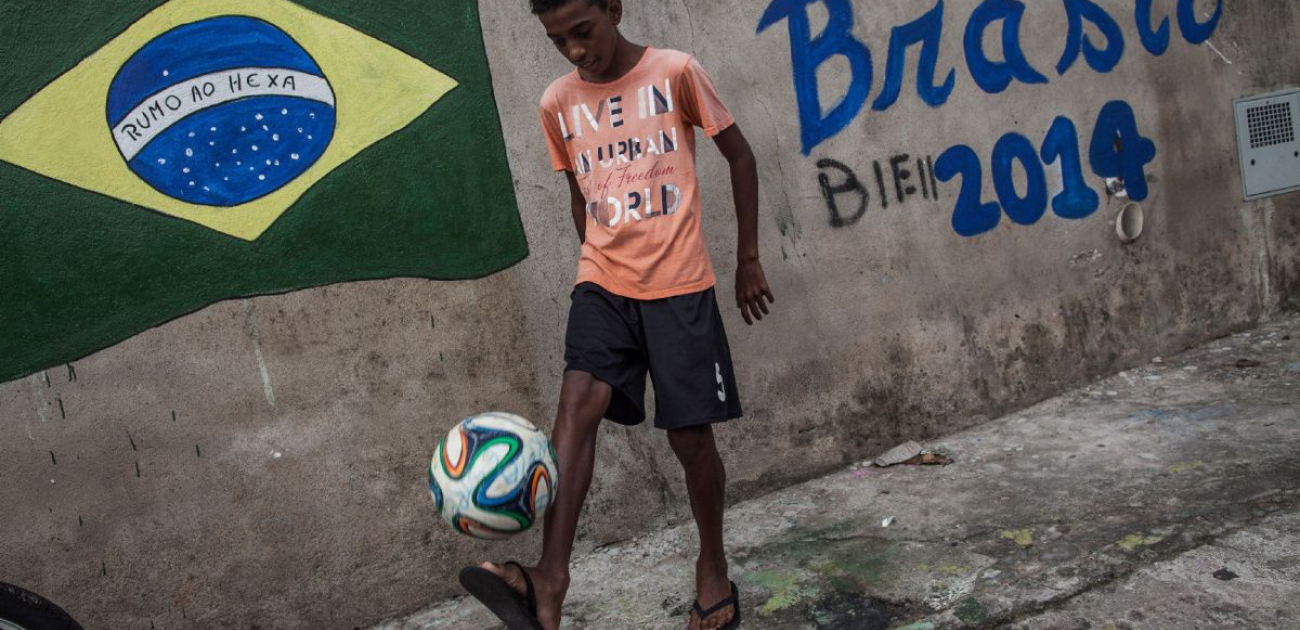Rilke, Vila-Matas, Paris and Another Warning to Members of the National Congress: Brazilian Football Is Great, but it Has an End
The poet Rainer Maria Rilke was born in 1875 in Prague, studied in Germany, was impressed by Russia, lived in Paris, where he worked with Auguste Rodin, moved to Trieste, then moved back to Germany and, finally, , settled in Switzerland.
He influenced authors of the following generations, such as the Spanish Enrique Vila-Matas, born in Barcelona, in 1948, who maintained an intense performance as a journalist, but was notable as a writer - above all a fiction writer.
In the seductive work "Paris has no end", the Catalan quotes or transcribes the poet on some occasions. In one of them, to present verses dedicated by Rilke to the artist Paula Modersohn-Becker, who died at the age of 31, entitled "Requiem for a friend". The composition is inspiring: "[h] there is somewhere an old enmity between life and the great work ...".
The book, moreover, narrates the prelude to the career of a young Spanish man who, intending to become a writer, moves to Paris and establishes, in the early 1970s, contact with some of the figures, French or not, who marked the intellectual scene (it is, therefore, a kind of fusion between fiction and autobiography).
The narrative is not restricted to contemporaries, it floats, with elegance, by other personalities who, years or decades before, passed through the city - such as Ernest Hemingway and F. Scott Fitzgerald.
When recalling Marcel Proust - Parisian author, creator of the monumental "In search of lost time" -, he notes that, for him, the "past (...) is not only not fleeting, but does not move from place. he never went on a trip. And on top of that, there is no end, it never ends ".
Alongside the architectural beauty, gastronomic abundance and luminosity, the notables that inhabited that city contributed - and still contribute - to mitigate it, making it, on the plane of desire, endless - and insurmountable.
Thus, whoever goes to the French capital seeks more than it can deliver in its time; he also looks for some Paris immortalized in literature, painting, poetry or cinema (or all of them, as did Woody Allen in his delicious "Midnight in Paris").
It was about this, then, that Proust wrote: the impossibility of a lyrical, or poetic end, due to the preservationist movement and at the same time a renewal imposed by the people; and not the physical disappearance of a metropolis that, only as a result of an apocalyptic event, would be wiped off the map.
It is precisely at this point that a comparison with Brazilian football can be formulated.
The richness of its history, involving teams and players (many myths, such as Botafogo in 1957, Santos in 1963, Internacional in 1979, Flamengo in 1981, São Paulo in 1992; or Arthur Friedenreich, Leônidas da Silva, Garrincha , Pelé, Rivelino, Zico, Sócrates, Careca, Raí, Romário and the two Ronaldos), contribute so that, when talking about what is being played today, and for whom it is played, a nostalgic and important historical burden will come, as if to remember the responsibility of the people who agreed to keep the tradition.
Therefore, Brazilian football is understood as the sum of past experiences, which are part of a continuous evolutionary and renewal process, revealing and affirming current practices.
It happens that, with the advent of new techniques of (i) ownership of football property and (ii) business financing, adopted mainly by European countries, the spontaneous training of players and the competitive viability of associative clubs were put to the test and, according to the results in multicontinental competitions indicate, failing.
Not only that, by the way: the financial and patrimonial situation of the local clubs also reinforces the infeasibility of the model defended, in a conflictual way, precisely by the people who intend to maintain it.
Despite this diagnosis, which nobody is able to refute, the new order of football, implemented in the main world centers, continues to be resisted in Brazil.
Thus, the stage was reached in which the owners of football, that is, the managers trained and immortalized in the club-associative environment, no longer have the conditions - and legitimacy, so much damage done to the Brazilian historical-cultural heritage - to determine the pace and content of the changes that must be implemented.
On the other hand, there is only one way out: the return of football to the people: the National Congress, therefore.
But congressmen are not deluded; or do not deceive the people they represent. Despite the fact that football has not "gone on a trip" and remains here - according to a Proustian metaphor -, no one else, outside Brazil, and even in Brazil, contemplates it, as he contemplated it in the past. And as football is a moment (unlike Paris, which offers hybrid sensations), the achievements of the past are insufficient to maintain the global interest in Brazilian football production - except for players' merchants, who enrich inversely in proportion to the club collapse.
Hence the mission - and the responsibility - of the National Congress. Hence, also, the opportunity to give back to the people what belongs to the people - and not from a cartolarial caste that, as the practical results demonstrate, is directed by self-interests. Hence, finally, the urgency to deny Rilke: after all, the great work need not be an enemy of life; it can transform and enhance life. And football, like no other activity, can, in this country of inequalities, greatly contribute to the construction of a more tolerant and egalitarian society.
The path is set: the conclusion of the convergence process of Draft Laws 5,082 / 16 (reported by Federal Deputy Pedro Paulo, DEM / RJ) and 5,516 / 19 (by Senator Rodrigo Pacheco, DEM / MG), both pending in the Federal Senate; and the delivery, by the National Congress, of the regulatory framework consistent with the greatness of Brazil's history and football.
Do you want more information?
 Rodrigo Monteiro de Castro
Rodrigo Monteiro de CastroRodrigo Monteiro de Castro is specialized in corporate and business laws, corporate transactions (M&A), capital markets and contracts.

